
Dental crown, Zirconium Crowns, Emax, Dental Bridges
Dental crowns are restorations used to protect and strengthen damaged teeth. They also offer an aesthetic solution to improve the appearance of the smile. More and more people are choosing to travel abroad to avail high quality dental crowns at affordable prices.
Dental crowns details
Dental crowns
Prices
About
Definition
Dental crowns are fixed prostheses that cover the visible part of a damaged or weakened tooth. They are custom made to perfectly fit the natural tooth and are fixed in place using a dental adhesive or sometimes by a cementation technique.
Intervention and Manufacturing Procedure
The procedure for placing a dental crown abroad usually takes place in several stages:
- Dental examination and tooth preparation
- Taking dental impressions
- Fabrication of the crown in a dental laboratory
- Crown try-on and fit
- Permanent fixation of the crown on the prepared tooth
Materials
Dental crowns can be made from a variety of materials, including:
- Ceramic (zirconia, e-max): offering excellent aesthetics
- Metal (alloy based on cobalt-chromium or gold): durable and resistant
- Composite resin: more economical and used for temporary crowns
Great Brands
Several well-known brands manufacture high quality dental crown materials, including:
- 3M ESPE
- Ivoclar Vivadent
- Dentsply Sirona
- VITA
- Nobel Biocare
Indication
Dental crowns are recommended in the following cases:
- Carious or damaged teeth
- Cracked or fractured teeth
- Teeth that have undergone root canal treatment
- Malformed or discolored teeth
- To improve the aesthetics of the smile
Possibilities of Anesthesia
For your convenience, various anesthesia options are available when placing a dental crown. Your dentist will explain the different methods to you and recommend the one that best suits your situation.
Lifespan
The lifespan of a dental crown depends on several factors, such as the material used, oral hygiene habits and regular visits to the dentist. In general, properly cared for crowns can last 10-15 years or more.
Duration of the Intervention
The placement of a dental crown can generally take 1 to 2 hours, depending on the complexity of each case. Your dentist will give you an accurate estimate of the time needed during your consultation.
Success Statistics
Success rates for dental crowns vary depending on a number of factors, including the quality of the material used, the skill of the dentist, and the care provided by the patient. In general, dental crowns have a high success rate, ranging from 90% to 95%.
Recovery
After the installation of a dental crown, it is normal to feel some tooth sensitivity for a few days. However, most patients can resume their normal activities the day after the procedure.
FAQ
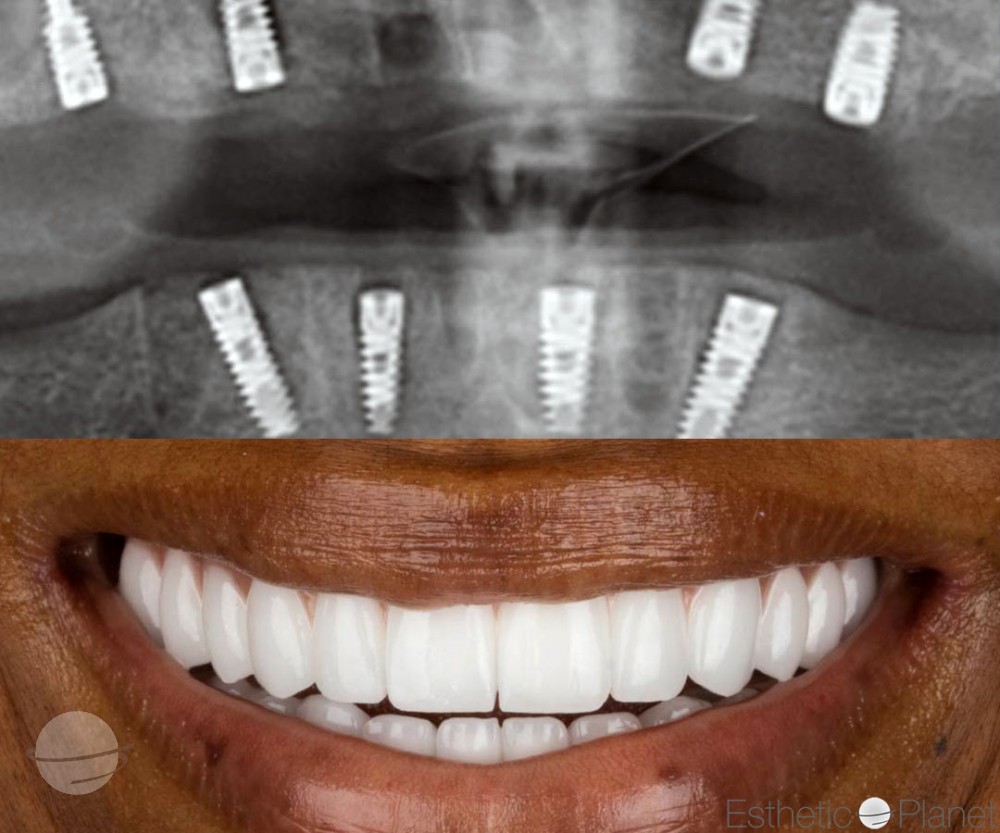
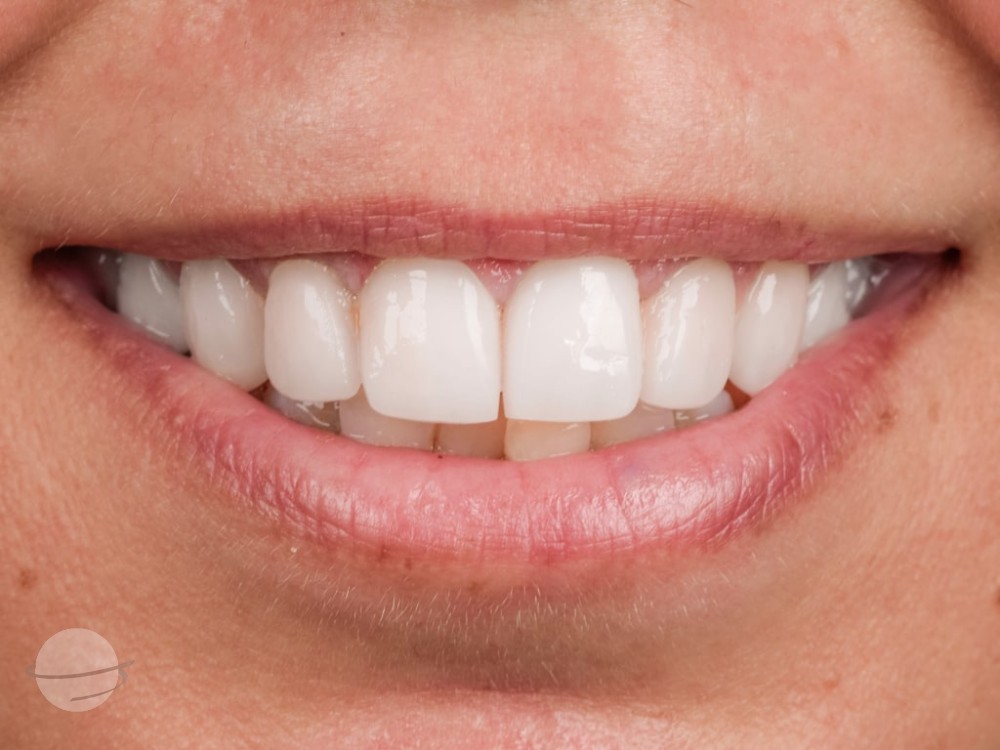
Zirconium crowns
Prices
About
Zirconium crown definition
Zirconia dental crowns are dental prostheses made from zirconia, a ceramic material used in dentistry for its strength and biocompatibility. They are custom designed to perfectly match the shape and color of natural teeth.
Types of Zirconia
There are different types of zirconia used in the manufacture of dental crowns:
- Monolithic zirconia: a single piece of zirconia without a ceramic layer.
- Laminated zirconia: a layer of ceramic is applied over the zirconia to achieve a more aesthetic appearance.
- Translucent zirconia: a zirconia specially designed to mimic the translucency of natural teeth.
Resistance of zirconia crowns
Zirconia dental crowns offer exceptional strength, making them a durable and reliable choice for tooth restoration. They are able to withstand normal masticatory forces and maintain their structural integrity over the long term.
The strength of one-piece Zirconia crowns can withstand a pressure of 1400 Kg/cm2. The pressure of the human jaw is around 60 to 70 KG/cm2 for comparison. The resistance of the zirconia crown greatly exceeds the pressure of the jaw.
Not all zirconia crowns are as strong as one-piece zirconia crowns, but they all far exceed human chewing strength.
the choice of shades
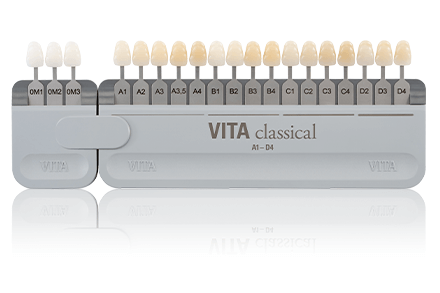
Vita color chart for zirconia crowns
Zirconium crowns are available in a wide range of shades to perfectly match adjacent teeth and ensure a natural aesthetic result. Dentists can choose the appropriate shade based on the patient's specific needs.
Dental Zirconia Brands
Several reputable brands manufacture high quality dental zirconia, including:
- Straumann
- Nobel
- Ivoclar
- Vita
CAD CAM process

Intraoral Scan
The manufacturing process for zirconia crowns often involves the use of CAD CAM (Computer Aided Design and Manufacturing) technology. This process allows the crown to be digitally designed and manufactured with precision using an automated milling machine. The measurements in the mouth are taken thanks to an intraoral scanner which digitizes in 3d the support which will receive the Zirconia crown.
Made on computer
The crowns are then digitally designed and printed in the equivalent of a specific 3D printer
The advantages of zirconia crowns

Resistant metal-free crowns
No opaque effectLight reflection
no discoloration of the gums (gray border)
Zirconia crowns are very resistant and durable, as well as presenting aesthetic advantages that are far superior to ceramic-metallic crowns. This makes them ideal for functional and aesthetic restorations. We can make dental restorations of teeth that undergo significant pressure on a daily basis, whether premo-molars or incisors and canines.
FAQ
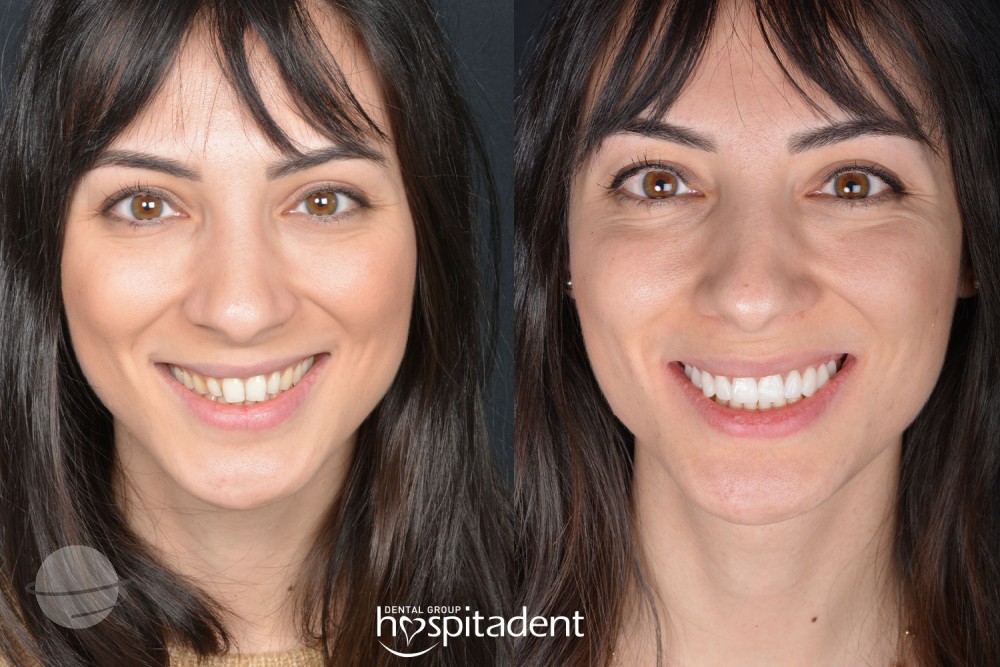

Emax crowns
Prices
About
Emax Crowns, from the Ivoclar laboratory.
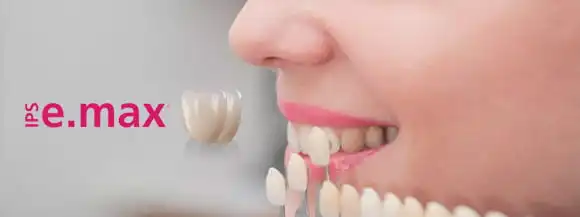
18 shades are available in Emax
Metal-free - The closest prosthesis to the real tooth
Emax crowns will coexist perfectly with your natural teeth. Their range of different translucent shades and the possibility to adjust their shape make them undetectable compared to your adjacent teeth. The absence of a metal structure (unlike metal-ceramic crowns) also prevents the unsightly appearance of a gray line that can usually appear between the crown and the gum when it recedes over time.
Manufacturing materials of Emax
Emax veneers and crowns are made from a ceramic composite material called lithium disilicate, which is known for its strength, transparency, and durability.
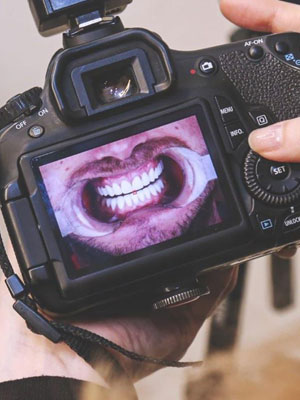
Aesthetic properties of Emax
Emax is favored because of its exceptional light refraction. The clear advantage is the aesthetic properties that mimic the characteristics of natural teeth. Many dentists believe that Emax is the material that offers the best aesthetic possibilities.
From our more than 10 years of experience in dental tourism, we have witnessed on many occasions the incredible effect that Emax dental restorations can give to our clients. The transparency that can be achieved is astonishing.
Strength of Emax
The strength of Emax is noteworthy, as the Ivoclar laboratory that produces Emax claims a strength of 470 to 530 MPA, which is equivalent to 470 to 530 KG/cm2 (specifically referred to as “average biaxial flexural strength”). This strength is thus 6 to 7 times greater than the natural pressure of the human jaw.
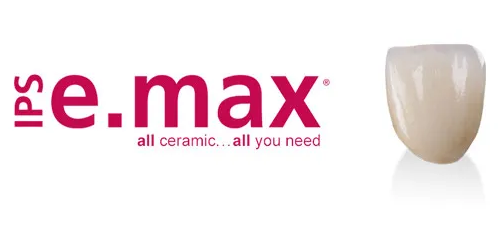
When to choose an Emax crown?
- Damaged or irreparably stained teeth
- Discolored teeth
- Poor quality of the natural enamel of your teeth
- Teeth that are fully or partially broken
- Replacement of an old unaesthetic crown
- Deformation of the natural tooth
- Hollywood smile
- Teeth that are too small
FAQ